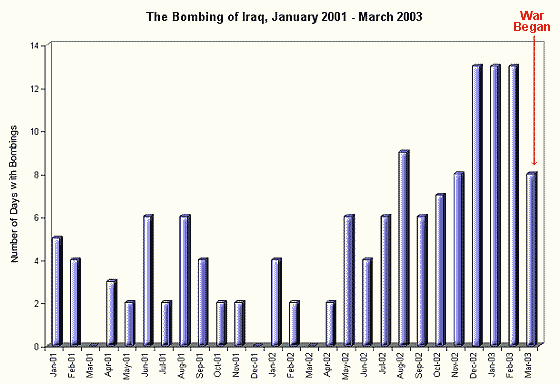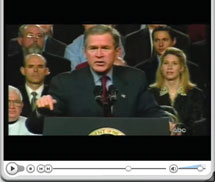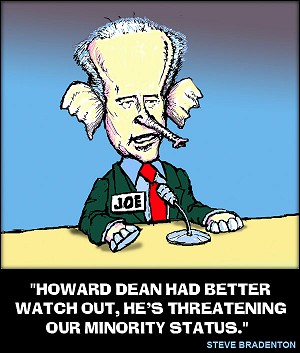= = = = = = = = = = = = = = = = = = = = = = = = = = = = = = = = = = = = = = = = = = = = =
Selecting a lawyer and an engineer with one of the nation's largest corporate law firms, whose clients have deep and occasionally controversial relations with the EPA, triggered concerns that Nakayama would not be able to aggressively enforce environmental laws.
Foremost among those concerns is W.R. Grace, which is under federal criminal indictment on charges related to the operation of its vermiculite mine in Libby, Mont. Hundreds of workers and Libby residents contracted lethal asbestos-related disease -- a situation that gained national attention after a Seattle Post-Intelligencer series in 1999.
A follow-up health screening in Libby showed that nearly 2,000 residents of the tiny Montana town have lung abnormalities that could herald asbestos-related disease.
Vermiculite ore from the Libby mine was sent around the country for processing, and asbestos-related disease followed its path. Between 15 million and 35 million homes nationwide have asbestos-tainted vermiculite insulation from Libby in attics and walls.
The trial, which is expected to begin in September, could result in prison sentences against seven current and former Grace executives. The Justice Department alleges that Grace executives knew about asbestos-related dangers in Libby but concealed those dangers from its workers, government regulators and the public.
The EPA has since declared Libby a Superfund site. In a 2003 court decision, Grace was ordered to pay the EPA $54 million in cleanup costs.
Despite the association of law firm Kirkland & Ellis LLP with Grace, a spokesman said Nakayama would have no conflict if confirmed for the assistant administrator's position.
"Kirkland & Ellis LLP represents W.R. Grace & Co. in litigation related to its Chapter 11 bankruptcy case," said Brian Pitts, a spokesman for Kirkland & Ellis in Chicago "Mr. Granta Nakayama has had no involvement in this matter during his tenure at Kirkland."
Independent analysts and ethics experts said Nakayama's affiliation with a firm that represented so many corporate clients with business before the EPA does not disqualify him from being the chief enforcer of EPA rules and regulations.
But they said the Senate must examine Nakayama's past closely during his confirmation hearings.
"Given the criminal indictment against W.R. Grace, Mr. Nakayama's potential conflict of interest deserves special examination during the confirmation process in the Senate," said Ken Cook, president of the Environmental Working Group, a Washington, D.C., research organization that has done extensive work on asbestos-related illness.
Sen. Patty Murray, D-Wash., expressed concern about the nomination.
"This appointment is just the latest in a series of moves that calls into question this administration's commitment to protecting our environment, our natural resources and the health and well-being of all Americans," said Murray, who has aggressively pushed legislation to ban asbestos.
Critics say the White House has attempted to minimize the science supporting such things as global warming and the danger of mercury.
In one of the more recent controversies, The New York Times reported earlier this month that a White House official who once led the oil industry's fight against limits on greenhouse gases had repeatedly edited government climate reports in ways that played down links between such emissions and global warming.
The official, Philip Cooney, was chief of staff for the White House Council on Environmental Quality, the office that helps devise and promote administration policies on environmental issues. Shortly after The Times report, he resigned and took a job with ExxonMobil.
In Nakayama's nomination, the Senate, in addition to resolving potential conflicts of interest, must decide how independent he will be. Eric Schaeffer, who resigned as the EPA's chief of regulatory enforcement in 2002 because he believed the agency wasn't aggressive enough in enforcing environmental standards, said it's impossible to generalize about how well Nakayama will perform as assistant administrator.
"The person who comes in as AA can make a difference even in this climate," said Schaeffer, who is now director of the Environmental Integrity Project, a non-partisan group advocating for more effective enforcement and to insulate decisions from political interference.
"On some issues he will have some independence," Schaeffer said. But on others, such as those involving oil and energy companies, the task will be more difficult. The asbestos case with Grace, he said, is one where the EPA could have more independence.
Even in the best case with the best administrator, Schaeffer said, "There's no question they get less done than they otherwise could" because of the Bush administration's focus on how environmental standards should be enforced.
As the EPA's chief enforcer, Nakayama would be responsible for ensuring that companies, communities and individuals adhere to laws protecting air and water and ensure that waste is properly processed and handled.
In that respect, Nakayama is well qualified. In 10 years with Kirkland & Ellis and as a practicing engineer, he represented companies whose products or services were regulated by the EPA and by state agencies
Before joining the firm in 1994 he served in the Navy's nuclear submarine service.
--------------------------------------------------------------------------------
P-I Washington correspondent Charles Pope can be reached at 202-263-6461 or charliepope@seattlepi.com
© 1998-2005 Seattle Post-Intelligencer











